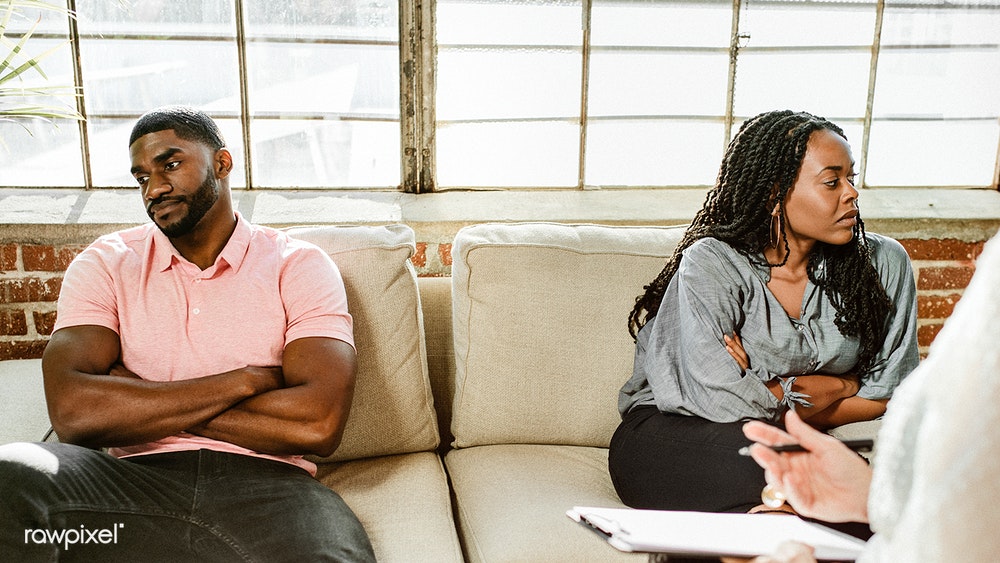We all know how difficult it is to maintain intimate relationships. They, like cars, often require some sort of routine maintenance to keep them in good shape. In other words, issues are bound to come up, so it is better to get fully prepared to handle these issues beforehand to prevent complications in the future. But while it is possible to do some basic maintenance and upgrades on our own, we can’t always get everything done. Sometimes, against our best intentions, couples therapy could be the best option (where a qualified therapist may assess our relationships to provide assistance.)
Conversely, let’s go through a more detailed description of the term.
What Is Couples Therapy and How Does That Work?
Couples therapy is a form of psychotherapy in which a counsellor with psychiatric experience dealing with couples, most commonly a Licensed Marriage and Family Therapist (L.M.F.T.), uses a series of psychological techniques to assist two individuals in an intimate relationship to gain insight into their relationship, resolving tension, and improving relationship fulfilment.
However, while couples therapy can differ based on the theoretical nature of the therapist, all couples therapy needs to include the following basic elements:
- an emphasis on a single issue (i.e. sexual difficulties, Internet addiction, jealousy)
- The therapist’s active involvement in addressing the relationship as a whole rather than each client individually.
- a solution-focused, change-oriented approach from the onset
- A well-defined treatment goal.
Half the time, we are quick to ask, Why do I need this? Well, let the statistics speak for themselves.
More than 97 percent of surveyed couples said couples therapy helped them get the assistance they desired, according to research commissioned by the American Association of Marriage and Family. Furthermore, 93 percent of couples said counseling provided them more powerful conflict-resolution techniques.
So there you have it; it’s basically a vital aspect of the relationship journey that you do not want to overlook.
Yeah, the relationship journey is not necessarily during crises.
Couples Therapy: What to Expect
Couples counselling typically begins with a series of traditional interview questions about the relationship’s past and an examination of each partner’s family of birth, beliefs, and cultural context. If possible, the psychiatrist uses the first sessions as a tool to intervene in any crisis at hand.
The couple’s therapist will also work with the pair to determine the problem that will be the subject of therapy, set treatment targets, and create a treatment plan.
Furthermore, during the recovery process, the psychiatrist will assist the pair in understanding the relationship complexities that are causing the issue, as well as the partner’s position in unhealthy encounters. This will assist them in altering their perceptions of the relationship and each other.
However, while getting perspective is vital, modifying habits and ways of engaging with each other is also an important part of couples counselling. Couples therapists also give homework to help couples adapt what they’ve learned in sessions to their daily experiences.
In the end, most couples benefit from couples therapy. Some of these benefits include;
- gaining insight into relationship dynamics
- increasing emotional expression and
- Developing the skills needed to interact and tackle issues more efficiently with their partners.
Who Should Get Couples Counseling?
Couples therapy literally helps with a variety of issues, including:
- straight or homosexual relationships
- Relationships between races
- Marriages and engagements at any stage
- Relationships between teenagers and college students
- Relationships with a significant age difference
Premarital therapy, for example, may be an invaluable way for a newly engaged couple to discuss romantic desires before marriage. Another partner who has been together for 25 years may find that couples therapy is an excellent way to rekindle the passion and romance in their marriage.
Additionally, couples therapy may help couples in marriage during a time of adjustment or heightened tension by resolving an existing issue.
Basically, finance, parenting, sex, infidelity, in-laws, chronic health problems, infertility, gambling, drug use, emotional distance, and constant disagreement are all common concerns therapists discuss in couples counselling.
Is it better for me to go to therapy or have a divorce?
If your new marriage or relationship is heading for the rocks, having a divorce isn’t always the only option. It shouldn’t even be an option except in life-threatening situations.
Couples therapy, on the other hand, should be the only viable option. It has the ability to save or even strengthen failing marriages. But you have to want it really badly to make therapy work. It’s more like it has to be both parties’ effort level.
Therefore, couples therapy is a good place to go if you want to remain married to your partner. Couples therapy, also known as marital counselling, may be just what your relationship requires to repair old wounds and begin again.
There are loads of advantages to marital therapy, especially when it is performed before contemplating divorce. Counselling can be an effective way to rebuild the basis of marriage and determine if divorce should be an option.
Why Couples May Put Off Going to Therapy?
Unfortunately, several partners who seek couples counselling do so after substantial harm has been done to their relationship. At this point, there are unresolved historical tensions, maladaptive relationship dynamics have now been ingrained, the interpersonal bond between spouses has been deeply compromised, and there is a high level of animosity. The list goes on and on.
According to studies, the average couple remains dissatisfied for six years before pursuing couples therapy.
This isn’t to say that couples therapy can’t help people overcome long-standing issues. Nonetheless, it will be far more difficult and time-consuming. It will necessitate a significant amount of commitment and effort from both partners.
Furthermore, couples therapy is often misunderstood. The misconceptions about what it is and what it is for can deter couples from seeking help early on. Some people believe that couples therapy is only for serious issues that affect a relationship, such as infidelity or addiction. Others see it as a desperate attempt to save the relationship before calling it quits.
However, people are unaware of the importance of marital counselling in treating a wide range of relationship problems. Some people think of it as a means to push their spouse to improve when they are “the problem.” They don’t realize how important it can be in enhancing overall relationship quality, which has an effect on people’s mental health.
What is the Difference Between Online Couples Therapy and Traditional Couples Therapy?
We are not only changing the way therapists perform couples therapy; we would want to lower the stigma associated with marriage counselling. The goal is also to make it more available and inexpensive.
Traditional face-to-face couples therapy has many benefits that online couples therapy does not. First is the freedom to share as much as one wishes without interference. It opens up the possibility for much more contact. Partners communicate more appropriately and easily because they have the time to process their own feelings before expressing them during a session.
The format also provides each partner the time and space to process their partner’s response and reflect on what they’ve “heard” rather than only focusing on what they are going to say.
On the other hand, most individuals find that they can express themselves better through writing. This then allows for a more open and honest emotional expression, increasing intimacy among partners.
This method is also ideal for scenarios where one or both partners frequently travel or have very different schedules. In cases such as this, it is pretty difficult to coordinate a time to attend couples therapy sessions together. Also, couples with children who have difficulty finding childcare can greatly benefit from the accessibility of the internet.
In addition, couples therapy does not generally get to provide many health insurance plans. Therefore, they can be quite costly for many families after only a few sessions. So, online couples therapy is a much more affordable alternative. Online couples therapists have also found this format allows for much more productive conversations, which results in much quicker progress in treatment.
Will Couples Therapy Work?
Counselling for couples and marriages can assist you in resolving difficulties and strengthening your relationship. When both partners are willing and committed to the process, it is most likely to succeed. Online therapy is just as efficient as face-to-face counselling.
How Much Does Relationship Therapy Cost?
The average cost of relationship counselling in the United States is $80 to $90 for an hour-long session. The cost of a session can range from less than $35 to $195 or more or from $350 to $1,950 for a package of ten sessions, depending on the counsellor and style of therapy.
Are Couples Therapy Worth It?
If you need to talk about certain feelings in specific areas of your relationship, or if you’re having trouble understanding why you or your spouse feels a certain way, therapy can be a very valuable tool. If you find yourself in this circumstance, you should seek out a relationship therapist immediately.
Should My Boyfriend and I Go to Couples Counseling?
Couples therapy is effective for any two adults in a relationship who are experiencing excessive conflict. You can go to therapy regardless of where you live, how long you’ve been together, or whether you’re gay or straight.
Conclusion
Talk to your partner about couples therapy if you think it might help your relationship, and find out if they’re game. If they refuse, explain its importance and how you believe it may improve your connection.
Though it can also be offered by other psychologists and psychiatrists, couples therapy is mostly given by certified therapists known as marital and family therapists. In addition to offering recommendations for potential therapists, friends and relatives may also be able to direct you to a specialist if you are currently seeing a therapist for other reasons.



